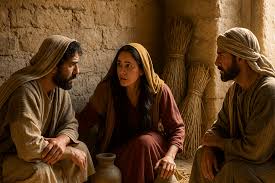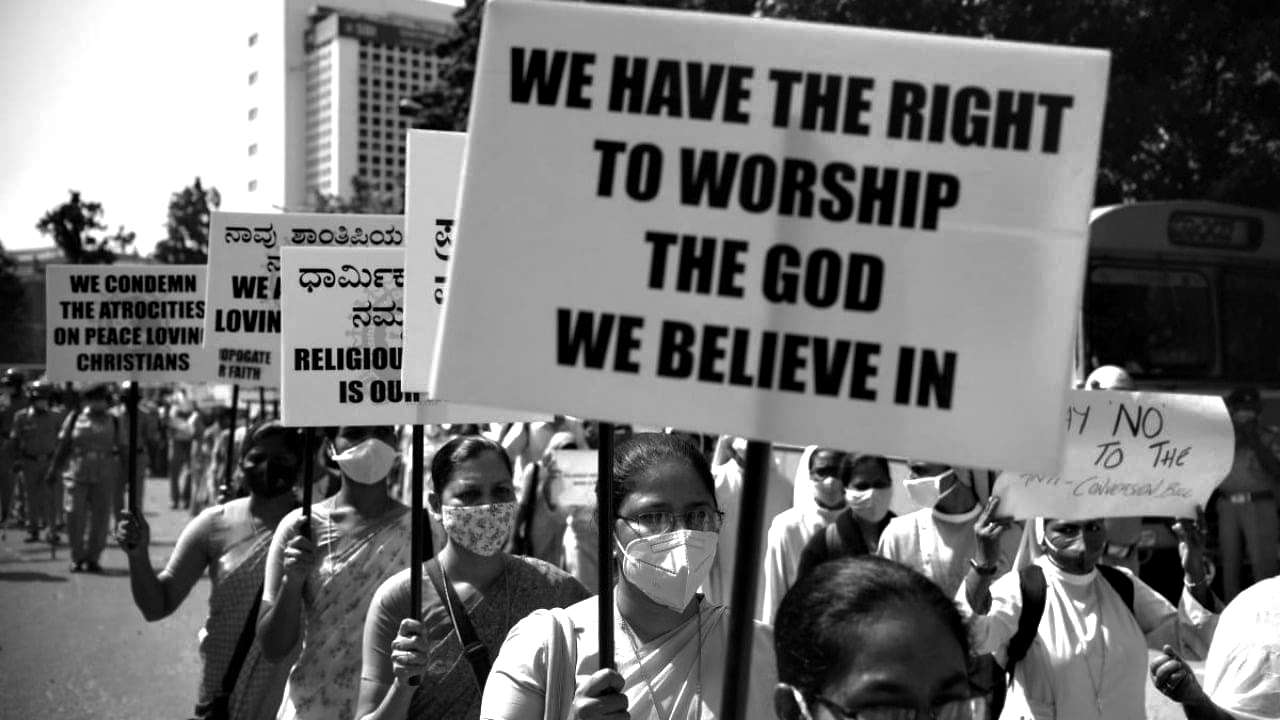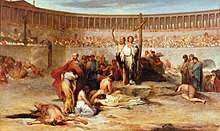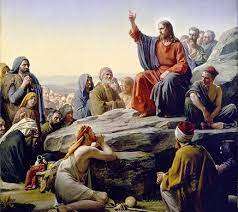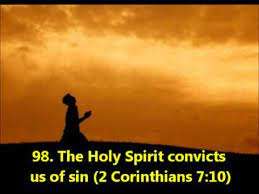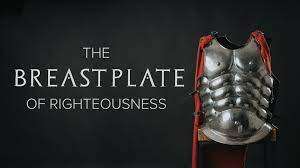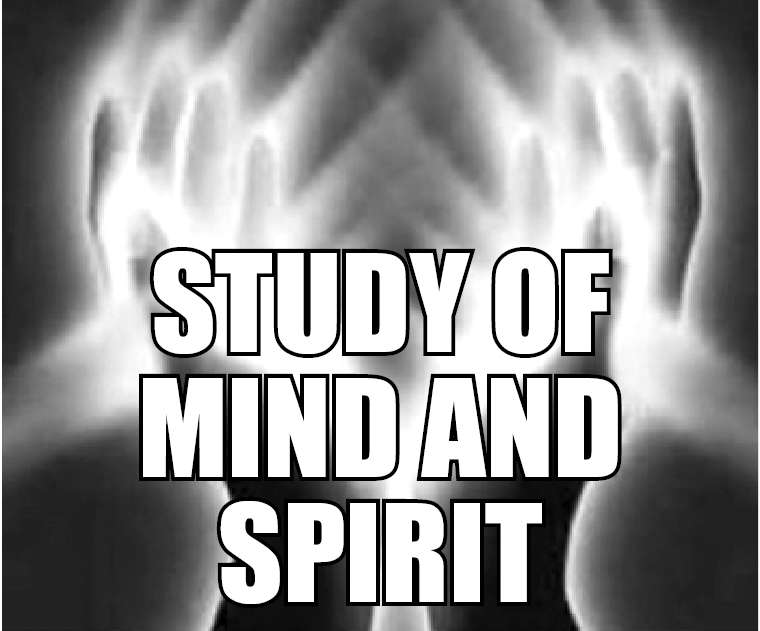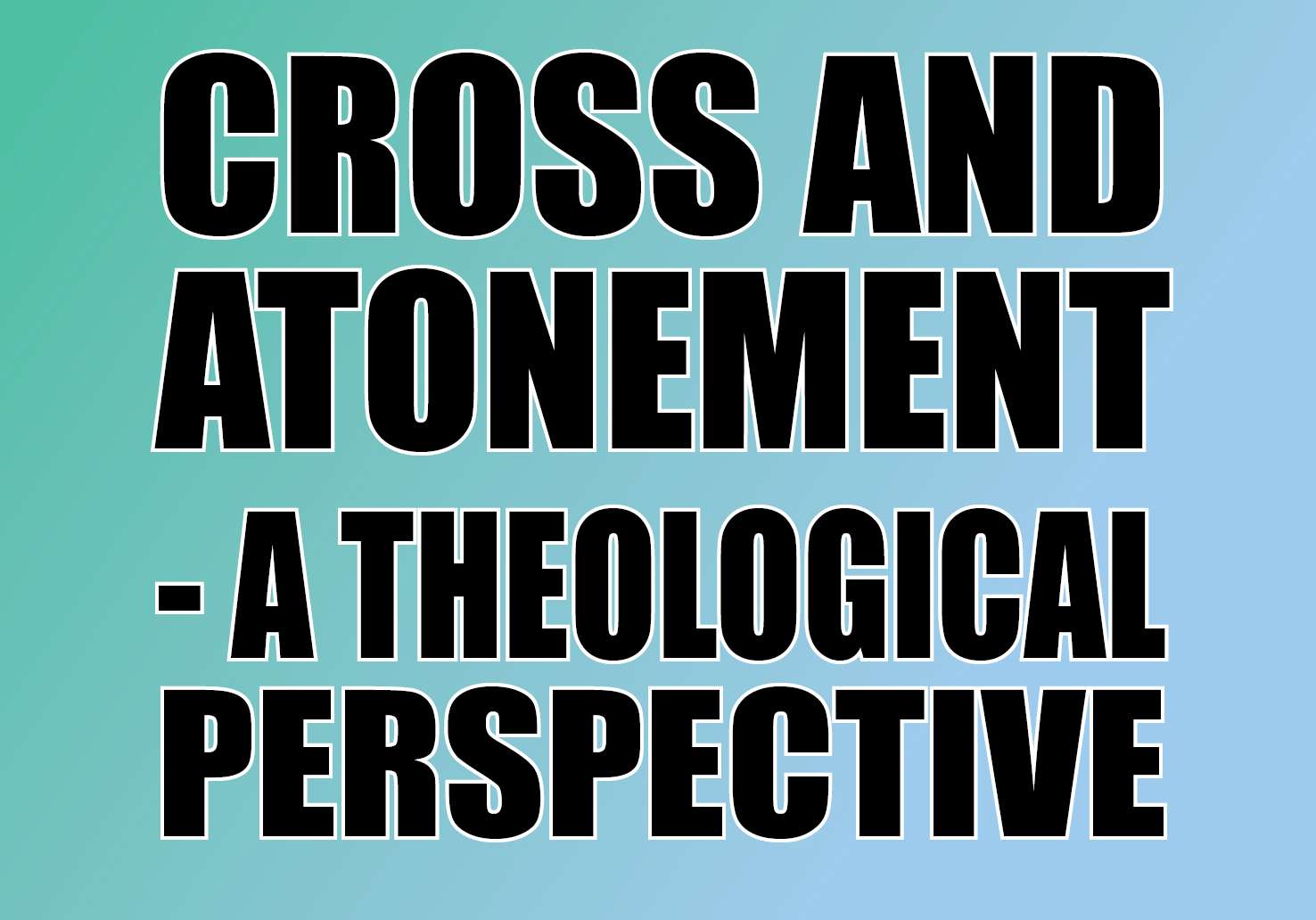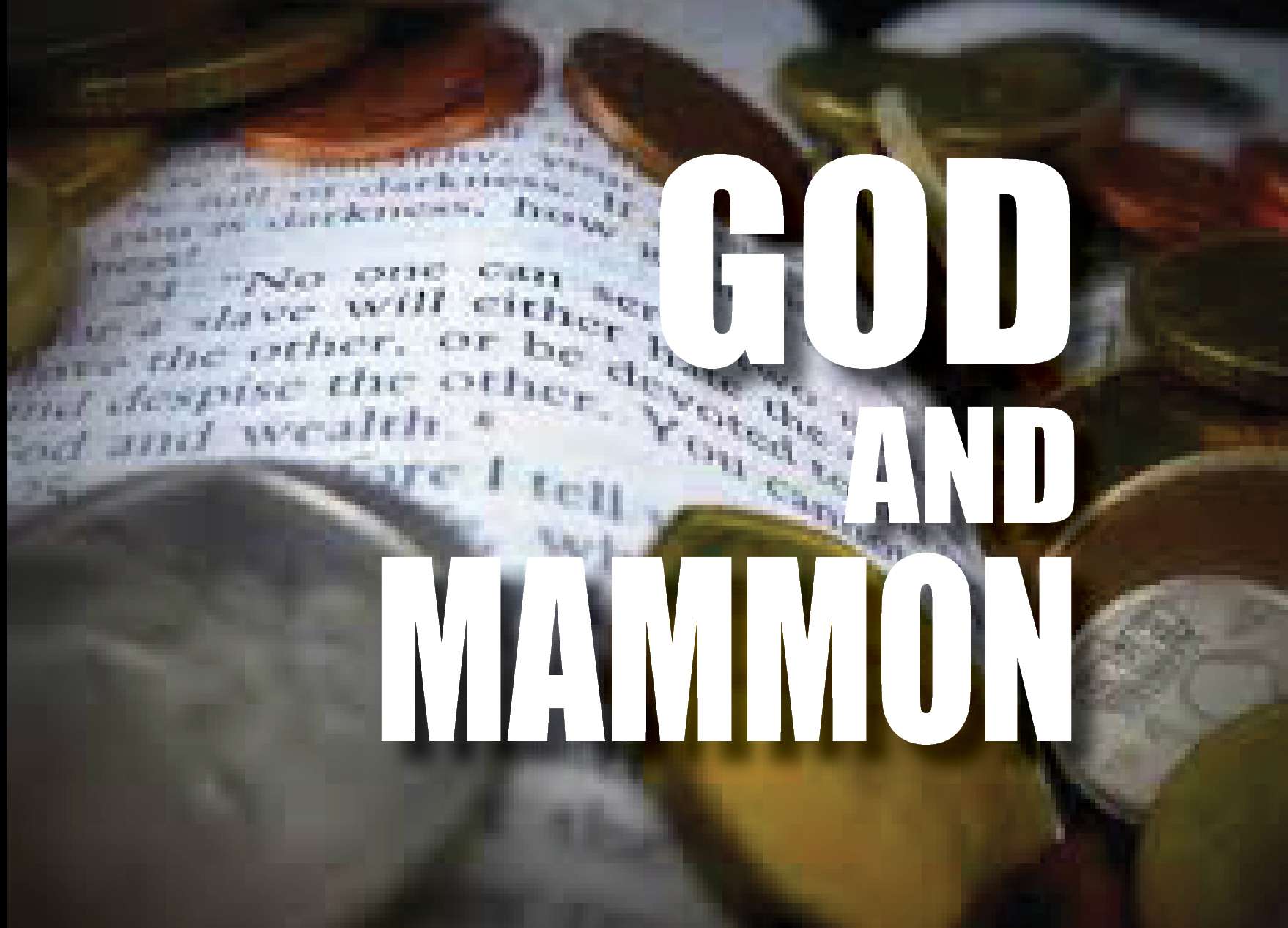
Pentecostalism and Nation Building
Dr. Domenic Marbaniang
When the Visigoths sacked Rome in 410, Christianity was blamed for weakening the once powerful Roman empire. In response, Augustine of Hippo wrote the book The City of God in which he vigorously argued that none of the non-Christian religions could account for the strength of Rome but only for its demise; on the other hand, it was only by the will of the true God of the Bible that Rome was built and flourished. Numerous miraculous acts of God, he argued, demonstrate the strength of the Christian faith over the self-deceptive cult of Romulus, Rome’s founder, that Rome created and portrayed as a form of political religion. A man-made philosophy or religion can never be the strength of any nation.
When the old era of empires began to collapse in the eighteenth century, beginning with the French Revolution, the world saw the rise of nation-states along concepts of nation-building and nationalism. Democracies began to emerge finding justification for their identity and existence in the concept of the nation-state, or “one nation, one state” concept. In places such as India where multiple ethnic and linguistic groups exist, the shaping of a unifying national on the model of unity in diversity became an important task of nation building. This concept of unity upheld the values of equal respect for all religions, languages, and cultures. Secular and liberal values were sought after, as in Europe and America, to ensure freedom of thought, faith, and expression. However, this did not mean that a religious approach to nation-building no longer existed. In fact, religious forms of nationalism emerged in places where a particular religion or sect was dominant. Thus, for instance, we see Buddhist nationalism in Sri Lanka and Myanmar, Hindu nationalism in India, Islamic nationalism in Pakistan, and Christian nationalism in the United States, Canada, and Poland. In places where Christians were a minority, the accusation that they disturb the sense of national stability through evangelistic or proselytization works began to arise. One such example was the Niyogi Committee Report published by the Government of Madhya Pradesh in July 1956. It vehemently opposed missionary work on the grounds that conversion to Christianity often led to separatist tendencies, for example among Adiwasis of Jharkhand, Karens of Burma, and Nagas. The Report alleged that it found nowhere “Christians taking part in the nation-building activities” and cited a Christian writer saying in the National Christian Council Review of April 1955 that “Indian Christians, as a whole, have not identified themselves with nation-building activities.”
Such accusation is not dissimilar from the kind that Christians faced in Augustine’s time. The Pentecostal answer might not differ from Augustine’s either: the Spirit-empowered Christian does not weaken a nation; rather, a Spirit-empowered community is the greatest strength of a nation.
The original Pentecostal experience in Acts 2 was both multinational and transnational. The gift of tongues broke across cultural, linguistic, and national barriers demonstrating God’s favor open to all humans. When God poured out His Spirit, He did not destroy ethnic and linguistic identities but affirmed them, accepted them, and reached out to them in a language understandable to them. When the Spirit was poured out on Cornelius’ household and they praised God in tongues, the disciples instantly knew that God had accepted the nations of the Gentiles into the family of God (Acts 10:46-48; Eph.2:14-17). Therefore, the Pentecostal experience is unconditionally evangelistic and transnational. No doubt, the rapid growth of Pentecostalism today owes to the fact that it is inseparable from mission and evangelism. In recent times, scholars have noted the various ways in which Pentecostalism has contributed to nation building in nations all over the world. In this article we will look at two of these areas: concrete spirituality and spiritual warfare and intercession.
Concrete Spirituality
Pentecostal spirituality is unblushingly concrete, literal, and non-idealistic. Its hermeneutics is literal and its pneumatology concrete. The Bible is taken literally unless required otherwise and spirituality has to do with a vital relationship and communion with the Spirit of God. This concrete spirituality unravels in different places and times in different concrete experiences that are deeply connected to the experiencer’s own socio-political, economical, and spiritual context. In the case of the gangs in New York reached by David Wilkerson and the Teen Challenge, it appears as real deliverance from drug addiction and a life of violent crime after being filled with the Spirit. The same is true about Jackie Pullinger who ministered among triad members and drug addicts inside the then triad-controlled Kowloon Walled City of Hong Kong, a place where police dreaded to enter except in groups. She saw that as soon as these addicts were baptized with the Spirit and spoke in tongues, they were instantly delivered from addiction. She started spiritual rehabilitation homes for such people, helping hundreds and thousands. Her story is recorded in the book Chasing the Dragon (1980). The government recognized the success of her ministry and donated land for constructing rehabilitation homes. Isn’t the conversion and transformation of criminal triad members a thing to celebrate? The work of the Spirit not only reduced crime but also reduced the government burden to rehabilitate and cure addicts in that area. This certainly was a constructive contribution to society.
Pentecostal history has many such examples of concrete city transformation. In the early 1900s the healing ministry of John G. Lake had such an impact on the city of Spokane that it was declared to the healthiest city in the United States. His Spokane Healing Rooms were visited daily by around 200 persons.
Neither can social and economic transformations be overlooked. Sociologists like Peter Berger studied the deep connection between the Pentecostal explosion and socio-economic development in developing countries of Africa and Latin America. The idea of the Pentecostal ethic for development, based on Max Weber’s Protestant Ethic emerged out of these studies. Weber’s view was that the notion of rational conduct based on calling, which is a key element of modern capitalism, was born “from the spirit of Christian asceticism.” Employing this viewpoint, Peter Berger observed that this attitude is alive today in the Pentecostal ethic of “personal discipline and honesty,” proscription of alcohol and extra-marital sex, and encouragement of “ordinary people to create and run their own grass roots institutions.” He stated that Pentecostalism today was a “carrier of modern capitalist culture” leading to social mobility and the rise of the Protestant middle class. Even the infamous prosperity gospel seen in mega churches, Berger noted, posed no economic threat when the message plainly was “One: God does not want you to be poor! And two: You can do it!” In fact, Berger concludes that “speaking sociologically, the prosperity gospel is closer to the empirical facts than a romantic idea of the noble poor.” With reference to “You can do it!” Berger points to research data that indicates Pentecostals as being “more optimistic, more self-confident than their non-Pentecostal neighbors.” Thus, salvation is not merely from a future punishment but from sin, sickness, and the concrete reality of poverty.
Spiritual Warfare and Intercession
Power evangelism and power encounters are part of the normal Pentecostal life. But, the emphasis on city-wide transformation through spiritual warfare became more obvious with the Third Wave of Pentecostal-Charismatic renewal movement in the 1980s and 1990s. A key theologian in the movement was Peter Wagner of Fuller Theological Seminary who wrote about the various levels of spiritual warfare that begin with the ground (personal level), and go on to occult (power encounter with occults like satanism, witchcraft), and strategic-level intercession (warfare with territorial spirits that control regions, cities, nations). Notable among leaders who promoted strategic-level spiritual warfare (SLSW) towards city-wide transformation and revival were George Otis, Jr. Ed Silvoso, and Cindy Jacobs among others. George Otis, Jr. produced two documentaries Transformations: A Documentary (1999) and Transformations II: The Glory Spreads (2000) that report success stories of strategic-level intercession in cities of California, Columbia, Guatemala, Kenya, Canada, Uganda, and Scotland that saw drug cartels destroyed, witchcraft-control broken, crime rates go down and city-wide transformation seen not only in changed lives but also in the bloom of agricultural products and betterment of economy.
While critics may doubt whether these claims have been sufficiently verified and disagree with teachings related to spiritual warfare with territorial spirits, the fact that city-wide or nation-wide intercession by a unified church is called upon by example and exhortation in the Scripture is undeniable. We have the example of Esther’s call for a fast and the great deliverance of the Jewish nation in the Old Testament, the example of the Church praying during Peter’s imprisonment that was followed not only by Peter’s deliverance but also the anti-Christian Herod’s death. In fact, Scripture calls upon and mandates intercessory prayers leading to national peace (1Tim.2:1-4). But the main point of interest to us is the fact that such intercessory movements signify a strong city-wide and national concern to bring about a moral transformation, stability, and harmony in society. Given that fact, it is undeniable that Pentecostalism contains a strong national interest governed by the missional goal of seeing people delivered from the domain of darkness, turn away from sin and be reconciled to God.
In addition to the above, researchers have also noted nation-building phenomena in the context of mega-churches in South Korea, Malaysia, Singapore, Nigeria, and other places around the world. These churches not only contain a strong community-building focus on biblical moral and professional organizational standards, crucial to any nation-building project, but also reach out to the community around through mercy ministries, literacy centers, rehabilitation centers, homes for elderly and other community-development projects—needs that the government alone could not be expected to fulfill; thus, contributing immensely to stability and harmony in the community. In addition, the strong involvement of women in the Pentecostal movement speaks to the upliftment of women in society.
Thus, it has been observed that Pentecostalism and nation-building go together. In fact, Pentecostalism has a stronger moral basis and spiritual outlook that is more sustainable than mere nationalism as it aims first at self-edification and then at community development. The clear instruction is that one first be baptized with the Spirit before one can be Christ’s witness in one’s city, then in the cities around and around the world (Acts 1:8). Pentecostalism takes scripture literally, emphasizes on concrete spiritual experience, and demands adherence to the Pentecostal ethic. On those grounds, we can well argue that Pentecostalism plays a major role in nation-building.

